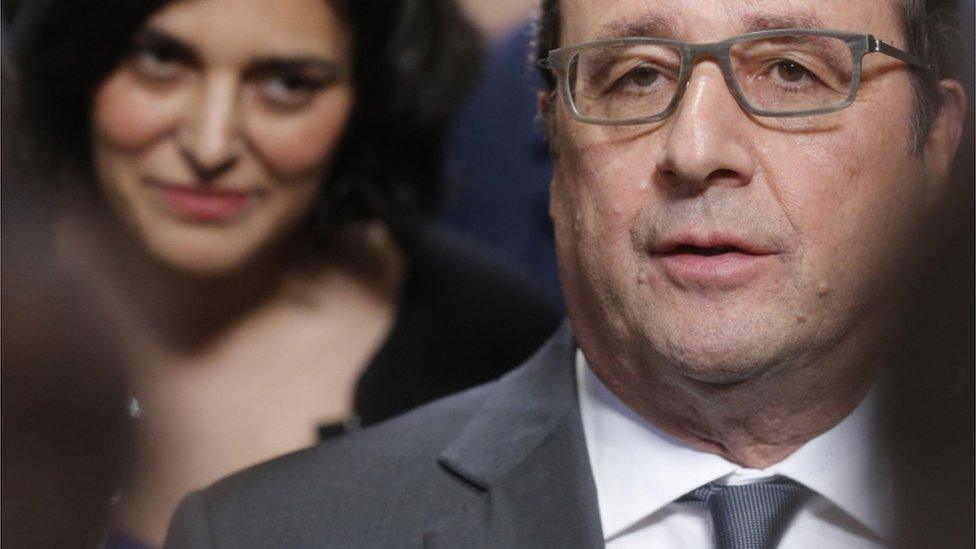French labour dispute: Strike hits all eight oil refineries
- Published
This strike is really making itself felt, says the BBC's Lucy Williamson from a Paris petrol station
A strike over new labour laws has spread to all of France's eight oil refineries, the CGT union says, in an escalating dispute with the government.
An estimated 20% of petrol stations have either run dry or are low on supplies.
Clashes broke out at one refinery early on Tuesday when police broke up a blockade at Fos-sur-Mer in Marseille.
Prime Minister Manuel Valls insisted the labour laws would stand, and that further blockades would be broken up.
"That's enough. It's unbearable to see this sort of thing," he told French radio. "The CGT will come up against an extremely firm response from the government. We'll carry on clearing sites blocked by this organisation."
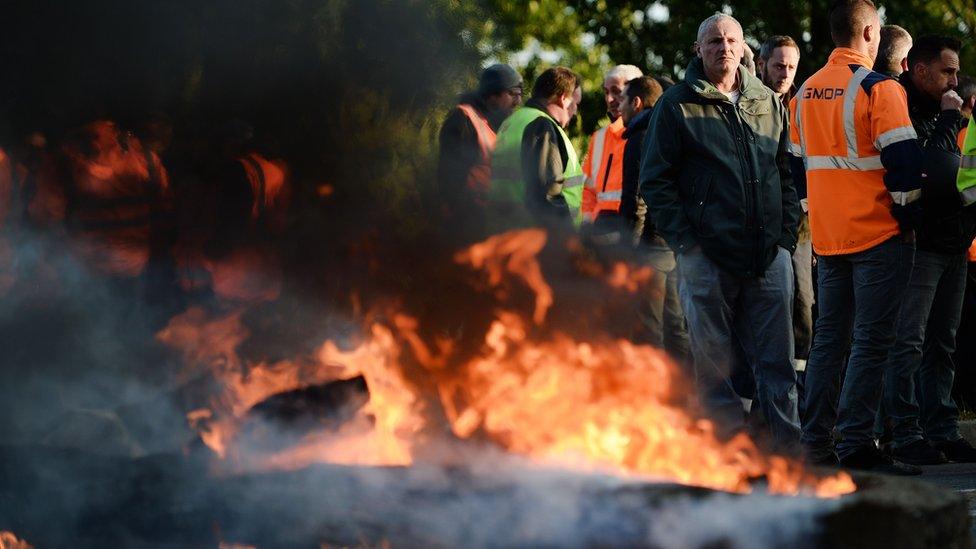
Workers barricaded the western port of Saint-Nazaire before blockading Donges refinery
The strike has gradually spread across France's fuel infrastructure, hitting oil refineries, fuel depots and petrol stations across the country.
The government said two out of every 10 petrol stations were affected, but motorists uploaded details, external of many more that had problems with supplies.
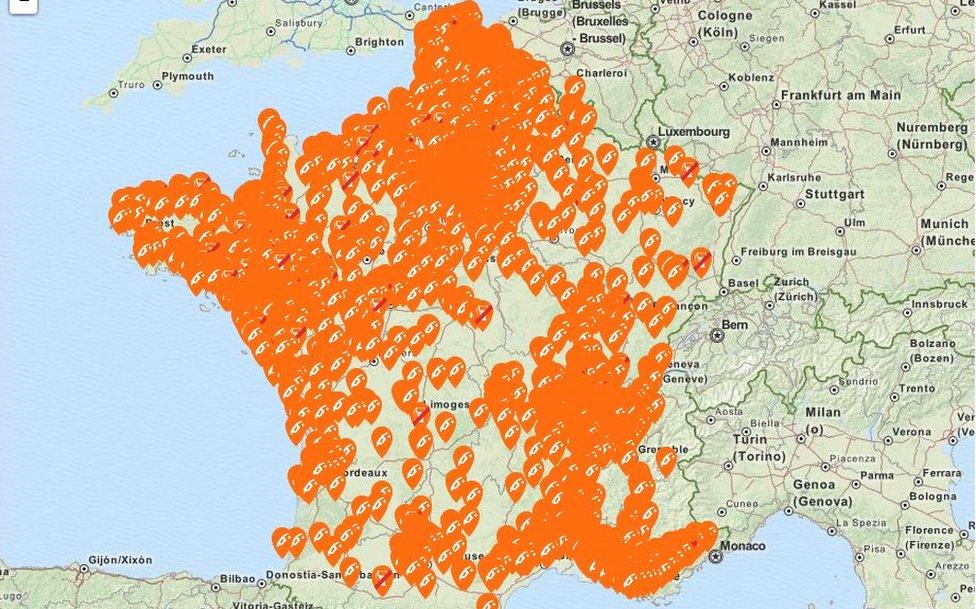
French motorists have been providing updates on petrol shortages across the country
Petrol shortages were a hot issue on social media on Tuesday.
Some Twitters backed the industrial action under the hashtag #JeSoutiensLaGreve (I support the strike), while others toyed with film titles under the hashtag #PenurieCarburantDansUnFilm (fuel shortage in a film).

Among the altered film titles were Pump fiction, Not Fast and Furious, Peter Panne (Peter Breakdown) and Total Recall (referring to France's main oil refinery company)
Police moved in early at dawn on Tuesday to dismantle a blockade outside the Fos-sur-Mer oil refinery and petrol depot at Marseille port.
'Minority support'
Tear gas and water cannon were fired, projectiles thrown, and tyres and pallets set alight, reports said. Several people were hurt on both sides.
In his first intervention in the dispute, President Francois Hollande denounced the blockade as a "strategy supported by a minority".
Multinational Total, which owns five of France's oil refineries, threatened to review its investments in response to the disruption.
"If our colleagues want to take an industrial asset hostage for a cause that is foreign to the company, you have to ask whether that is where we should invest," Chief Executive Patrick Pouyanne told reporters.
He cited a planned €500m modernisation plan at Donges, near the western port of Saint-Nazaire, where some of the biggest disruption took place on Tuesday.
"I'm not saying we won't go ahead with it, just that we must learn the lessons of what's happening and review these plans."

Euro 2016
The union is aiming to cut output by half at the refineries and wants strikes on the railways as well, in an attempt to reverse labour laws that make it easier for companies to hire and fire staff.
There are concerns that the disruption may affect the Euro 2016 football championships, with one former union leader saying the event is not "sacred".
The government provoked union outrage when it resorted to a constitutional device to force its watered-down labour reforms through parliament without a vote, earlier this month.
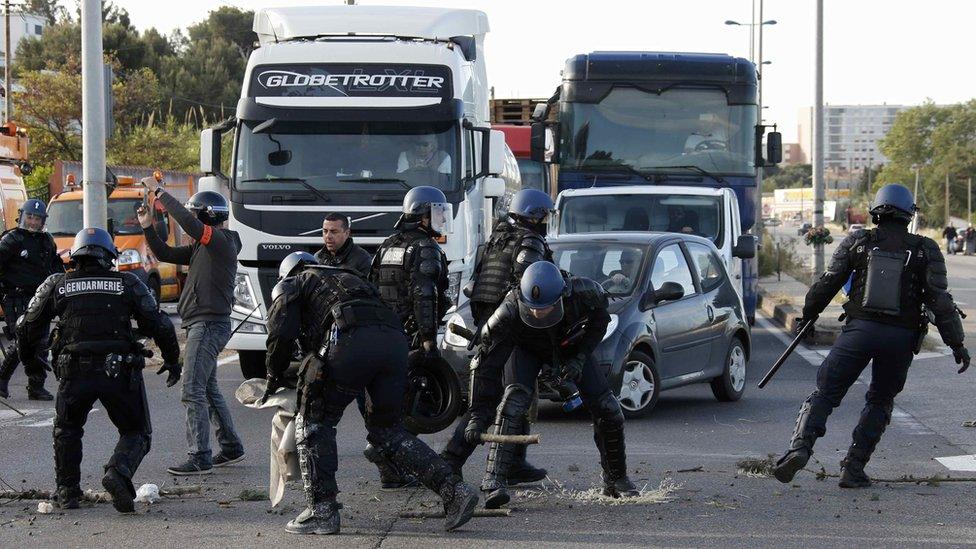
Police removed a blockade outside the Fos-sur-Mer refinery in Marseille early on Tuesday
French labour reform bill - main points
The 35-hour week remains in place, but as an average. Firms can negotiate with local trade unions on more or fewer hours from week to week, up to a maximum of 46 hours
Firms are given greater freedom to reduce pay
The law eases conditions for laying off workers, strongly regulated in France. It is hoped companies will take on more people if they know they can shed jobs in case of a downturn
Employers given more leeway to negotiate holidays and special leave, such as maternity or for getting married. These are currently also heavily regulated
- Published23 May 2016
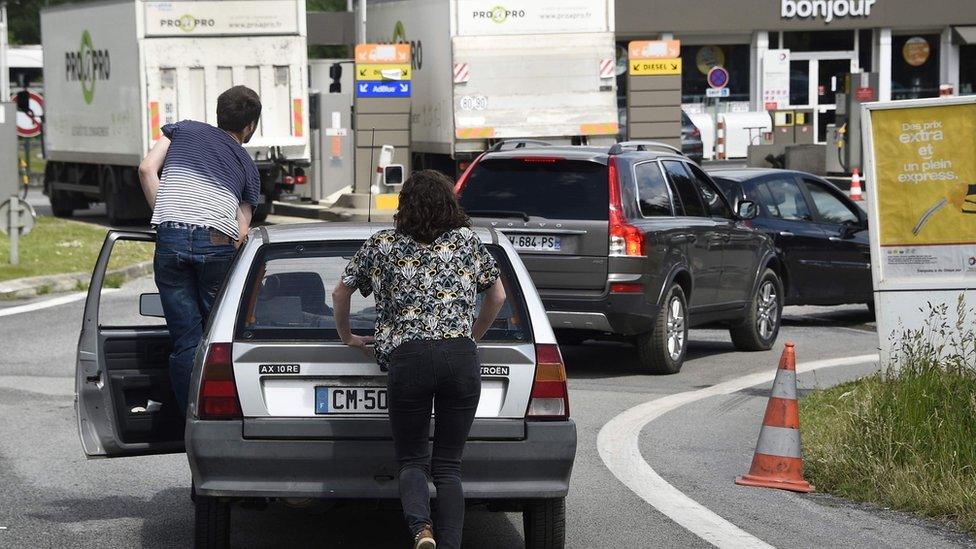
- Published15 March 2016
